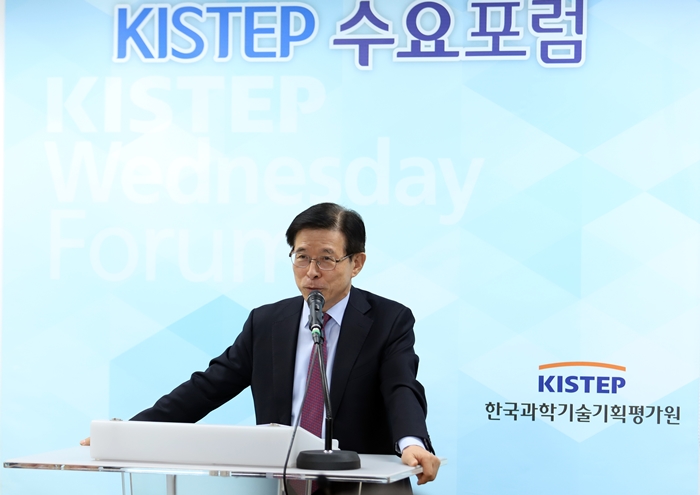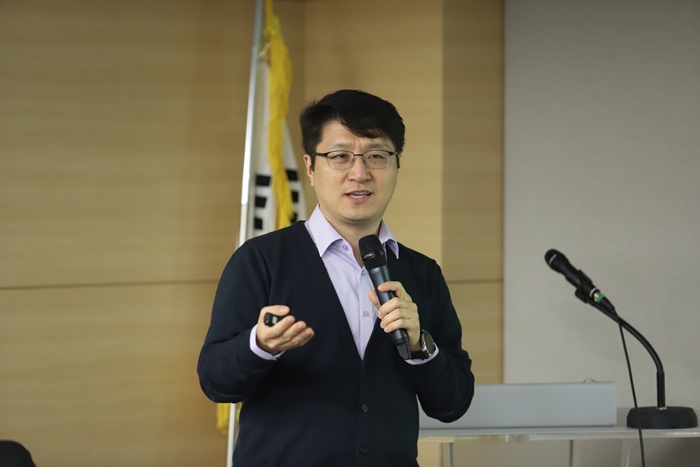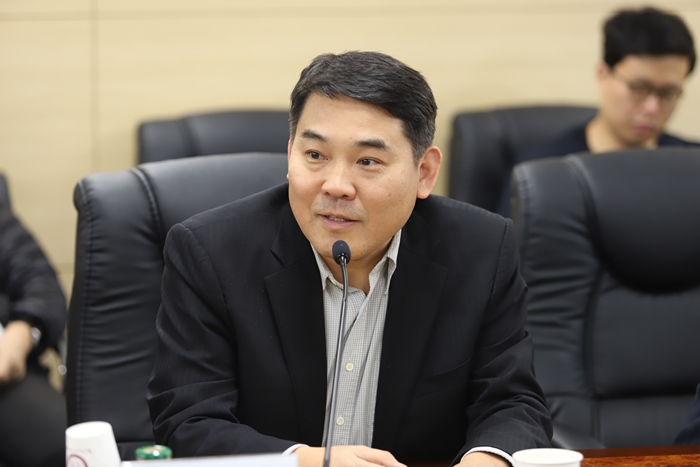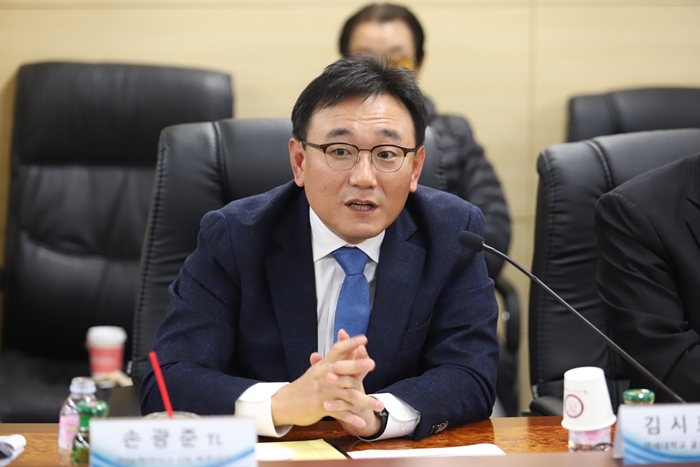News & Event


News & Event
News & Event
[The 114th KISTEP Wednesday Forum] Technology and Challenges of Intelligent Semiconductor for the Second Leap of Semiconductor Manufacturing of Korea
- Writer Yeory Lim
- Date2019-11-06
- Hit1,084
File
-
Download
 20191106181659.jpg
(165.79KB / Download 221회)
20191106181659.jpg
(165.79KB / Download 221회)
KISTEP held the 114th Wednesday Forum in the theme of ‘Technology and Challenges of Intelligent Semiconductor for the Second Leap of Semiconductor Manufacturing of Korea’ on 6th November (Wednesday).

▲ Sang-seon Kim (President, KISTEP)
Korean government is planing to select system semiconductor industries as one of the 3 new industry areas for innovation growth, and to put intensive investment in R&D. Among them, intelligent semiconductors, that is a combination of a system semiconductor and an embedded Software, work for data operation·control, and became one of the crucial components in the 4th industrial revolution such as AI·IoT·self-driving car. The world including U.S.A. and China is active to develop intelligent semiconductors, and Korea is also planing to invest 1 trillion Won to develop next-generation intelligent semiconductors from 2020 to 2029. This forum was prepared to seek plans for Korea, who has the best technology in memory semiconductor areas in the world, to lead international markets of intelligent semiconductors, and to become a powerhouse in all semiconductor areas.
The forum was began with the opening address by Sang-seon Kim (President, KISTEP), and followed the presentation of Young Su Kwon (Assistant Vice President, AI SoC Research Division, Electronics and Telecommunications Research Institute), and panel discussion with Shiho Kim (Professor, Yonsei University) and Kwang June Sohn (Technical Leader, SK Hynix), and open floor discussion were followed.

▲ Young Su Kwon (Assistant Vice President, AI SoC Research Division, Electronics and Telecommunications Research Institute)
Assistant vice president Kwon explained that “Semiconductors are the fundamental component in all kinds of information and communication devices, and the crucial component utilized in various spectrums from smart phones to self-driving vehicles in the 4th industrial revolution.” Then he clarified that “The manufacturing of semiconductors are divided to ‘design’ and ‘production.’ Ideas for ‘design’ and sophisticated manufacture for ‘production’ are vital, and Korea has technologies for both of them.”
During his explanation on the shift of paradigm of semiconductor markets and intelligent semiconductors, he asserted the necessity of supports in processor areas saying that “The Korea’s market share in worldwide semiconductor markets is 75%, on the other hand, it has only 3.5% of share in processor markets.” Then he continued the explanation on the shift of paradigm for semiconductors from a component in early 2000s, System on Chip that is possible for full operation with a chip, to semiconductors specialized in AI of present. He added that “AI was already emerged in 1950s, but the growth was stagnated due to the lack of semiconductors capable of processing complicate algorithms, so these have a intimate relation.” However, the current technology of semiconductors reached the limit because it could not solve problems from using exceeding power to dissolve heating, therefore the current main issue relating semiconductors is to solve power problems rather than to improve performances.
Lastly, he emphasized that the development in softwares to enhance applications of semiconductors is very important, since softwares are electronic signals generated from semiconductors and they can determine their performances and efficiency one another. As the current semiconductor industries of Korea focus on manufacturing, he suggested that investment in software experts is required to improve the competitiveness of system semiconductor areas.

▲ Shiho Kim (Professor, Yonsei University)
In panel discussion, professor Kim mentioned that “Although Korea has the world’s best memory semiconductor technologies, it is true that the competitiveness of system semiconductors is weak.” With suggestions for fostering system semiconductor areas, he claimed that “Development·production·sales of memory semiconductors can be done by a single enterprise, but those of system semiconductors can be managed by international cooperations. So Korea should put efforts in international cooperations as well.” Also, he emphasized that “As the software aspect is very crucial for system semiconductors, it is required to foster human resources with related capabilities.” Lastly, he put an example of the similarities between memory semiconductor areas and AI semiconductor areas, and clarified that “Korea has enough potential to lead world markets.”

▲ Kwang June Sohn (Technical Leader, SK Hynix)
Technical leader Sohn of SK Hynix emphasized that “Many enterprises, research institutes, and countries supported AI semiconductor areas with large amount of budget, but the investment of Korea was relatively low. We need to foster related areas as soon as possible by comparing to China who has 10 times more AI semiconductor related enterprises than Korea.” Moreover, he suggested that “In order to applicate the world’s best memory semiconductor technologies to AI semiconductors, new technologies should be developed by intimate cooperations between the government and large enterprises.” He added that the government’s supports are important for developing element and original technologies, and for active basic science research. Then he stressed the necessity of university-led R&D by pointing the lack of human resources able to design semiconductors.